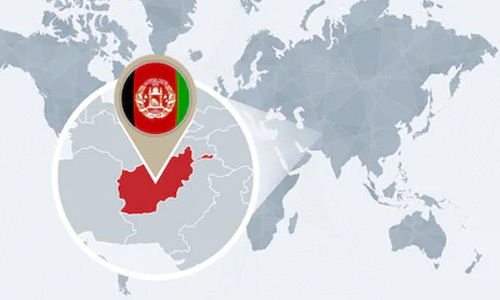There are two types of approaches between Modernism and Traditionalism among the developing Islamic countries: adoptability and paradox. Given the inclusion of Islamic principle in the legal system of the country, especially in national constitution of the Islamic Republic of Afghanistan, it has chosen the first approach. According to conservative thinkers, it has caused some theoretical and practical challenges in legal practices. They believe that the combination approach is not possible, but due to the national and international requirements have been accepted. Therefore, the challenges are proportional to the level of political and economic dependency of the countries. The more dependent the deeper is the challenge.
In clearer term, According to article 3 of the national constitution, Afghanistan has highly preserved its Islamic identity, and on the other hand, it is highly tended to the international norms and values. For example, Afghanistan has adapted dozens of international conventions in past 18 years without any reservation rights legally justified by the article 7 of the national law. As a result, it has confused many practitioners in realistic arenas. The decision makers and lawyers seem to be in a crossing road whether to choose the Islamic discourse or the liberalism discourse. For example, in some cases, the employees of MoFA are confused; from one hand, they need to respect international requirements, and on the other hand, they have not to forget the national requirements in regard to implementation of the adopted international laws and values.
According to reformist thinkers, the Islamic Republic of Afghanistan is a good model of combination of modernism and traditionalism as it has enabled the system to have more capability in management of today’s society. Thereof, among variety of interpretations from Islam, the Shia and Hanafi interpretations are more flexible into combination of traditionalism and modernism. Shia, In addition to using traditional sources such as Quran, Sunnah and Ijma, also believe in using from rational sources which has been well reflected in the academic works of moderate scholars such Farabi, Ebn Khaldoon and so on. Among the temporary scholars the faithwa and religious degree of Ayatullah Faiyaz are highly adaptable to the current international norms and values; this indicates that modernism and Islamism are more similar to two friends rather than two opponents or enemies due to the commonalities exist in regard to using of rational source.
In a deeper view, the origins of these challenges come from ignorance, social and political context, dogmatic thinking, complicated nature of religious sources and in some cases the unruly ego of human being. Regarding religious language, it means that religious language is, somewhat, symbolic not possible to understand unless having good relation with Allah and vast knowledge of religious topics. Concerning ignorance, some ignorant people are not seeking to find out the truth; they think that they are the owner of the truth. In the other word, there are two types of ignorant groups of people: one who are not aware and one who do not allow themselves to be aware. For example, the extremist groups neither are aware and nor allow themselves to be aware, especially those who are trained in the closed contexts. From this point, confrontation starts between modernism and extremist groups of traditionalist. However, politics are blamed for having role in this issue but undoubtedly it is the effect, not cause; it might be similar to a piece of cotton which is easily flammable because of its nature.
According to moderate interpretation from Islam, any rule, regulation or modern phenomena which are not against Islam, they are considered Islamic. Therefore, a very high percentage of modern values and achievements such as democratic system and international laws including international declaration of human rights, Child Right Convention, Convention of Elimination on all forms of discrimination against women, the Convention on non-racial discrimination and so on can be considered Islamic as long as it is not against the main principles and its general spirits. Undeniably, there are some exceptional cases but no one should expect a hundred percent unity in thoughts and views. The today’s civilization and advancement is not the production of dogmatism thinking but the blessing of unity in diversity.
Instead of confrontation among cultures and civilizations as Huntington had predicted, we had better launch a dialogue and friendship among cultures so as to learn from each and other. In fact, we do not need to change the opportunities to threats; we should confess all cultures and civilizations are the products of human being, and so it is respectable unless threaten the freedom of thoughts and human society. Based on this, both moderate traditionalist and modernists are under similar threats and need to seek common solution. In past 18 years, both national and international people, even those who sincerely took part in reconstruction of Afghanistan, have been victimized by the extremist groups. That is why, Afghan people stress on preservation of new democratic system and the current achievements. They are confident in not needing to re-experience the model of political systems, especially Talibanism with its tendencies towards extremism.
As aforesaid, the parts of the paradoxes come from ignorance dark context of education. Unfortunately, most often the extremists have been trained in dark, closed environment more similar to the middle aged seminaries. The content of their lessons are limited to jurisprudence and Hadith while both have been politicized within the long course of history. As a result, their graduates think that they have reached the ultimate truth, but do not know that do not know. Consequently, from one hand we need to eliminate the dark context and contents, on the other hand, we need to respect the rational-based knowledge and freedom of thoughts. However, as a short term solution, they should be compelled walking on the right way or decisively be stopped from farther expansion.
Home » Opinion » Afghanistan: the Example of Adoptability between Modernism and Traditionalism
Afghanistan: the Example of Adoptability between Modernism and Traditionalism
| Mohammad Zahir Akbari

